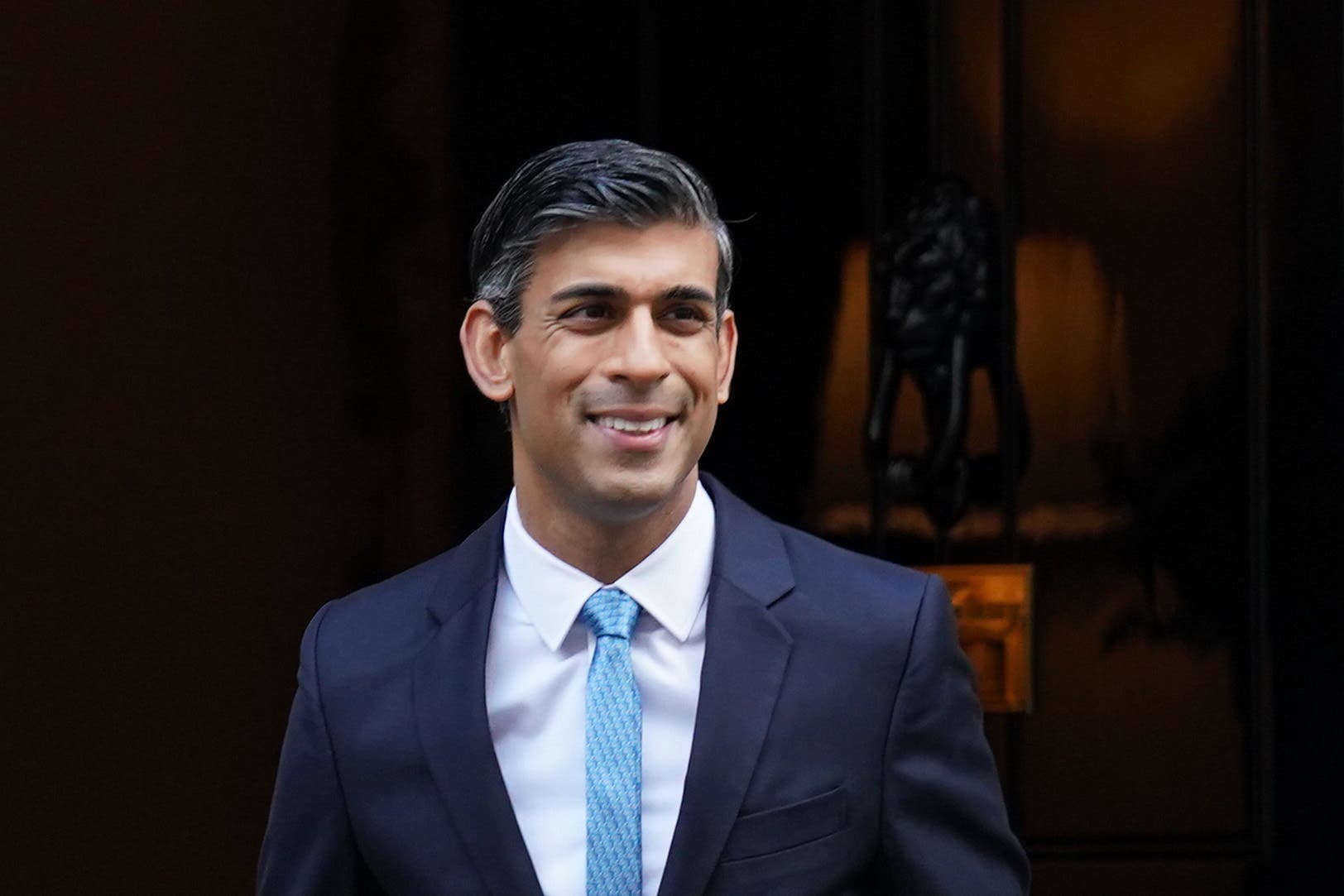Sunak pledges ‘robust pragmatism’ not ‘grand rhetoric’ with foreign policy
The Prime Minister’s speech will signal a different approach to relations with competitors than under Boris Johnson.

Rishi Sunak will outline his vision to stand up to competitors with “robust pragmatism” rather than “grand rhetoric” as he distances himself from Boris Johnsons’ foreign policy approach.
The Prime Minister will rule out “short-termism” and “wishful thinking” when dealing with adversaries including Russia and China as he pledges to stand up for British values.
In his first major foreign policy speech, Mr Sunak will tell international dignitaries and business leaders on Monday he will “do things differently” as he stresses the need to reinvigorate relationships in Europe.
Both Mr Johnson and Liz Truss, his short-lived successor in Downing Street, were seen as taking more combative approaches with allies such as France’s Emmanuel Macron.
Mr Sunak will stress the need to adapt to new challenges and threats as the Government updates the integrated review of defence and foreign policy.
In the speech at the annual Lord Mayor’s Banquet in London’s Guildhall, Mr Sunak is expected to say: “Our adversaries and competitors plan for the long term. In the face of these challenges, short-termism or wishful thinking will not suffice.
“So we will make an evolutionary leap in our approach. This means being stronger in defending our values and the openness on which our prosperity depends.
“It means delivering a stronger economy at home – because it is the foundation of our strength abroad.
“And it means standing up to our competitors, not with grand rhetoric but with robust pragmatism.”
Ms Truss initially refused to describe the French president as a “friend” while Mr Johnson frequently scrapped with him over issues such as post-Brexit fishing rights.
Even out of office, Mr Johnson has become involved in clashes with allies, with Berlin this week dismissing as “utter nonsense” his claim that Germany wanted Ukraine to quickly “fold” to the Russian invasion for economic reasons.
Mr Sunak has been trying to portray himself as the calmer and more sensible successor to the periods of chaos under his Conservative predecessors.
But he will maintain their firm commitment to supporting Ukraine’s resistance against Vladimir Putin’s war after meeting Ukrainian President Volodymyr Zelensky in Kyiv.
Mr Sunak will vow to “stand with Ukraine for as long as it takes” and pledge to maintain or even “increase our military aid next year”.
“And we will provide new support for air defence, to protect the Ukrainian people and the critical infrastructure that they rely on.
“By protecting Ukraine, we protect ourselves.”
Mr Sunak has been seeking to work more closely with France to tackle migrant crossings of the Channel in small boats, and with Albania to get a returns agreement for failed asylum seekers.
However, there are concerns that efforts to broker a deal with Albania have been made more difficult by Home Secretary Suella Braverman.
The nation’s prime minister Edi Rama accused her of using “crazy words” and attempting to find scapegoats for the crisis by targeting his people.
The Prime Minister will stress the need to deepen ties in the Indo-Pacific as well as strengthening bonds that have been frayed by Brexit with Europe.
“Freedom and openness have always been the most powerful forces for progress. But they have never been achieved by standing still,” he is expected to say.
“Under my leadership we won’t choose the status quo. We will do things differently.
“We will evolve, anchored always by our enduring belief in freedom, openness and the rule of law and confident that, in this moment of challenge and competition, our interests will be protected and our values will prevail.”
Bookmark popover
Removed from bookmarks